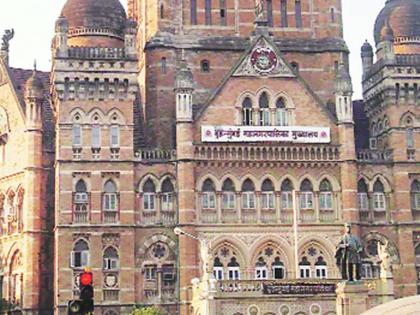Mumbai: BMC Responds to Allegations of Decade-Long Desilting Neglect in City Reservoirs
By Amit Srivastava | Updated: August 2, 2024 23:18 IST2024-08-02T23:01:43+5:302024-08-02T23:18:17+5:30
After reports surfaced that the Brihanmumbai Municipal Corporation (BMC) had not performed desilting work in Mumbai’s key lakes and ...

Mumbai: BMC Responds to Allegations of Decade-Long Desilting Neglect in City Reservoirs
After reports surfaced that the Brihanmumbai Municipal Corporation (BMC) had not performed desilting work in Mumbai’s key lakes and reservoirs over the last decade—essential sources of drinking water for the city—the civic body clarified that the water supply is consistently disinfected and undergoes all necessary treatments.
B.N. Kumar, Director of the NatConnect Foundation, noted the civic body’s admission that no desilting work had been carried out at the Tulsi, Modaksagar, Tansa, Middle Vaitarna, and Vihar lakes in the past ten years. In response, the BMC stated that under the Government of India's Jal Jeevan Mission program, they have maintained the water supply quality at a purity level of 99.34%. The BMC emphasized that it has received numerous accolades for providing excellent water supply and is committed to delivering the highest quality purified water. The claims from some media outlets suggesting that the water supplied to Mumbai lacks disinfection are entirely false, according to the BMC.
To clarify any misunderstandings among Mumbai citizens regarding the city's water supply, a BMC official explained that water is supplied daily from seven reservoirs: Vihar, Tulsi, Tansa, Modak Sagar, Upper Vaitarna, Hindu Hriday Samrat Balasaheb Thackeray Middle Vaitarna, and Bhatsa. These reservoirs collectively supply 3,950 million liters of water daily. The water goes through purification and disinfection processes at the Bhandup and Pise Panjrapur treatment plants before being distributed through 27 service reservoirs.
The BMC stressed its responsibility to provide uninterrupted, pure, and adequate water supply to Mumbai residents. Water from the seven reservoirs is transported to Pise Panjrapur (1,365 million liters per day), the Bhandup complex (2,810 million liters per day), Vihar (90 million liters per day), and Tulsi (18 million liters per day) through pipelines and tunnels with diameters ranging from 2,235 mm to 5,500 mm. At the water purification centers, the water undergoes coagulation, flocculation, settling, rapid sand filtration, and post-chlorination to ensure the highest purity.
The Maharashtra Engineering Research Institute (MERI, Nashik) and the Maritime Board have conducted sediment surveys at Vihar and Tulsi lakes, with final reports still pending. Appropriate actions will be taken once these reports are received.
When planning the reservoirs, it is assumed that some sediment will come from the catchment areas, and the reservoirs are designed accordingly. MERI has been tasked with preparing sediment survey reports for Tansa, Modak Sagar, and Middle Vaitarna reservoirs. Reports for Tansa and Middle Vaitarna have been submitted, indicating that the annual water storage capacity of the Middle Vaitarna reservoir has decreased by only 0.244%, while the Tansa reservoir has seen a decrease of just 0.116%. MERI concluded that the decrease in annual storage capacity for the Tansa reservoir is negligible and does not affect its water supply capacity.
The institute also noted that there are currently no technical criteria, guidelines, or instructions regarding the acceptable rate of sediment accumulation and its impact on live storage capacity in relation to reservoir sediment removal. The sediment survey report for Modak Sagar is still in progress, and further actions will be determined upon its receipt. Additionally, the Upper Vaitarna and Bhatsa dams, which supply water to Mumbai, fall under the jurisdiction of the State Government's Irrigation Department.
Overall, the BMC administration reiterated that sediment removal from reservoirs and water purification and disinfection are entirely separate processes. Establishing a connection between the two is not technically accurate from a water engineering perspective. The BMC is diligently working to provide the best-purified water supply to Mumbai, and the honors it has received reflect this ongoing commitment.
Open in app